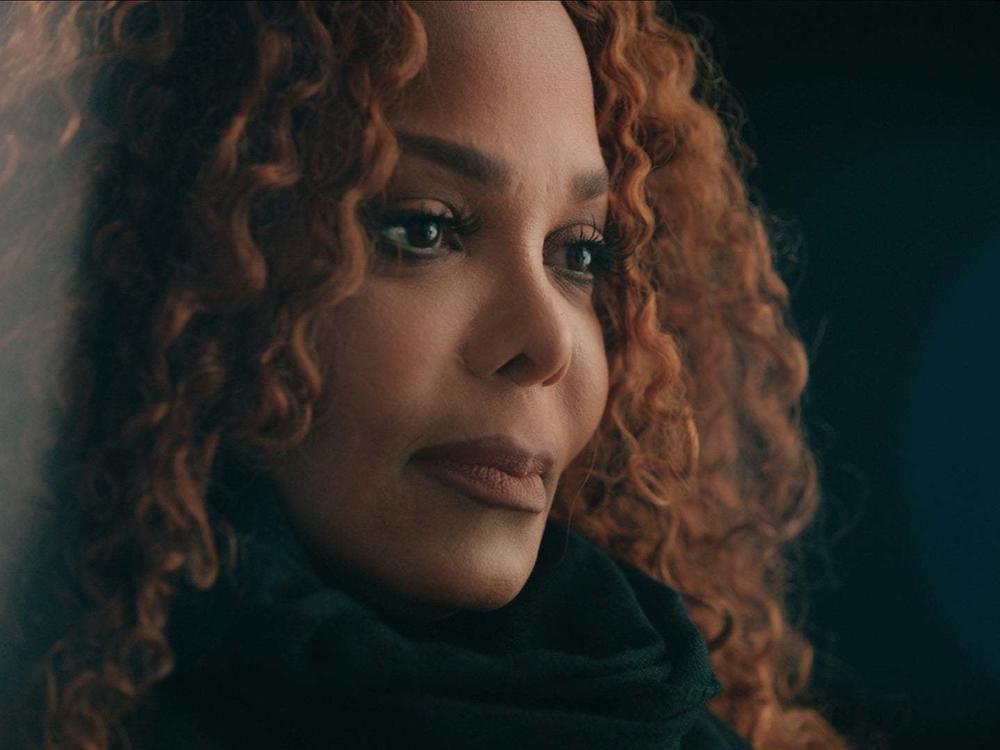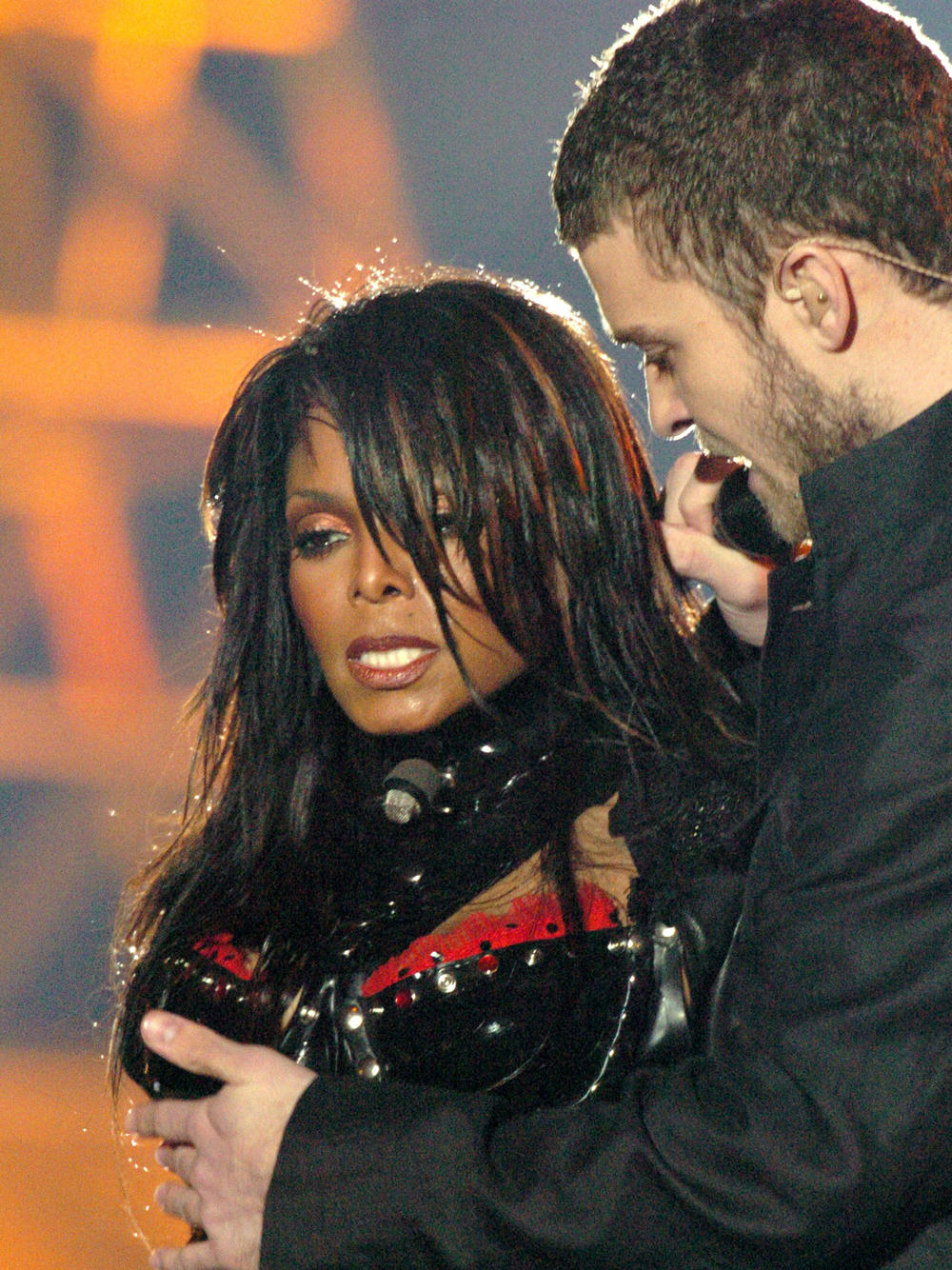Section Branding
Header Content
Lifetime and A&E's Janet Jackson docuseries promises more than it delivers
Primary Content
The promise of A&E and Lifetime's four-part docuseries on pop icon Janet Jackson, titled simply, Janet Jackson. – with a period — is obvious.
Executive produced by Miss Jackson and her brother Randy — with never before seen home movie footage and interviews with big stars like Tyler Perry, Samuel L. Jackson and Missy Elliot — the project offers a close-up look at a famously private music legend told from her perspective.
But, after watching two of the four hours A&E and Lifetime will air over two days, I thought this artist — who has spent her entire career protecting her public image and private moments — wasn't really prepared to allow a fully incisive documentary about her own life.
It feels as if there is a tension inside Janet Jackson.; the docuseries often provides interesting revelations, only to scurry away from big moments for the next story point – as if unwilling to dig too deep into painful memories or controversial times.
The tension between disclosure and privacy
For example, in the first episode, Janet Jackson speaks emotionally about her first marriage to singer James DeBarge. The two eloped and got married in secret when she was just 18 years old, and she discovered DeBarge had a raging drug habit which he couldn't shake; their marriage was annulled about a year later.
Still, as heartbreaking as that story is – she says DeBarge left her alone in a hotel room in Grand Rapids, Mich. for three hours on their wedding night – it feels like there is much more left unsaid. Her father Joe Jackson was famously controlling; his rigid ways helped mold The Jacksons into a hit group for Motown and guided her early performing career. How did he and the rest of the family react to her surprise marriage – especially when it became obvious how much DeBarge was struggling with substance abuse issues?
Her union with DeBarge wouldn't be the only time Janet Jackson surprised her family with nuptials. Her sister, Rebbie Jackson, said she was also "blindsided" when Janet married second husband Rene Elizondo, Jr. in 1991. But there's not much explanation here for why Janet has been so secretive about those events, beyond Rebbie's observation that her sister is intensely private.
The docuseries isn't above a little empty hype, either. The first episode closes with ominous clips suggesting Janet will speak on the longstanding rumors that she had a secret daughter while married to DeBarge that she either gave to Rebbie or put up for adoption. Early in the second episode, Janet and Rebbie imply it's not true – a denial the family has maintained for years.
"I could never keep a child away from James," Janet Jackson tells the camera at one point, without directly saying the child does not exist. "How could I keep a child from their father? I could never do that, that's not right."
But the docuseries doesn't note that one reason the rumors persisted is because members of DeBarge's family have told press outlets they thought Janet was pregnant when the marriage ended. James DeBarge said on a reality TV show in 2016 that he believed the child existed.
Still, even though DeBarge appears in Janet Jackson. — and the docuseries shows images of newspaper clippings about his statements on the child — he isn't shown answering any questions about that issue on camera. And Janet Jackson never mentions him or his family as a possible source of the rumors.
It is odd, given how much attention those allegations got just a few years ago, that the docuseries doesn't fully explore this — if only to refute or explain what they show DeBarge has said.
Telling moments in home movie footage
There are some telling moments revealed in the first two episodes, in part, because Jackson's second husband Elizondo documented much of their life with his own cameras. We see her writing lyrics for songs while recording the album Janet Jackson's Rhythm Nation 1814, pushing back on criticisms that her artistic identity is solely a creation of producers Jimmy Jam and Terry Lewis.
Another scene, where Jimmy Jam gets into an argument with her while recording vocals for Rhythm Nation – he is pushing her to deliver more energy in her performance – perfectly encapsulates how fatigue and pressure can bring emotional combustion in recording.
The docuseries also often references her desire to escape the shadow of her superstar brother, her willful father and her famous last name. "It has opened a great deal of doors for me...having that name," she says at one point. "[But] I wanted my own identity."
As a native of Gary, Indiana, I loved how the docuseries began with Janet and Randy visiting the tiny, two-bedroom home there that she, her parents and her eight siblings lived in during the 1960s. (It was, in fact, just a few blocks north of my grandmother's house.) But it was also odd to see her experience Gary mostly from behind the window of an automobile, surveying a crumbling, economically depressed area that is now a shadow of the bustling city it was when she lived there.
The third episode promises to deliver her perspective on the child molestation accusations made against her brother, now-deceased pop icon Michael Jackson.
And there will be lots of interest in hearing her side of the infamous 2004 Super Bowl "wardrobe malfunction," where her breast was exposed briefly at the end of her halftime performance by guest Justin Timberlake. Fans have long held she was unfairly damaged by the incident – paying a heavier price than Timberlake, perhaps due to the ire of then-CBS CEO Les Moonves.
A docuseries like this one would be a good venue to find out exactly what happened from her perspective. What was planned for the halftime show, did it go wrong, did she feel Moonves was gunning for her afterward and did she feel abandoned by Timberlake?
I wasn't able to see the final episode, so I don't know if those questions were answered or how. But given what I have seen of Janet Jackson., I'm not confident we'll get the kind of in-depth examination that usually makes for a great docuseries.
Like the moment when Jimmy Jam presses Janet to deliver a better performance in the studio, this documentary needed an outside voice strong enough to push her to go deeper — revealing more than we can read in a Wikipedia entry or see in gossip columns.
Over the years, you get the sense that the Jackson family has devoted a lot of energy to downplaying, avoiding and publicly ignoring the dramas which have swirled around them for decades. It's a defense mechanism which makes sense on a human level, especially given how much attention, commentary and coverage the superstar family has drawn since the 1970s.
But that reflex doesn't serve Janet Jackson., leading to a docuseries that pulls back the curtain a bit, but falls short of fully revealing the inner life of a groundbreaking pop star with so many compelling stories left to tell.
Copyright 2022 NPR. To see more, visit https://www.npr.org.


